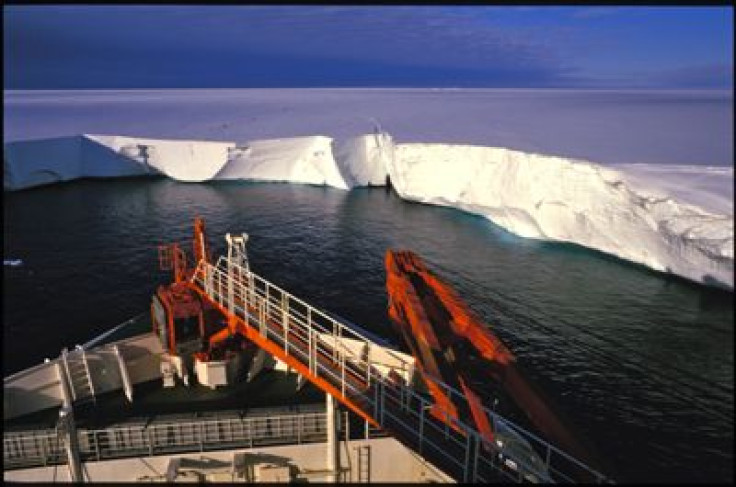Decline in Antarctic Ice Sheets Sooner than Thought

As our climate warms Antarctic and Arctic ice sheets continue to melt but researchers say that the decline in Antarctic ice sheets is coming much sooner than previously thought.
“The decline in the Antarctic ice sheets thus commenced almost 5,000 years earlier than assumed to date, though our investigations show great regional differences and demonstrate how important deepwater archives are,” said the lead author of the study, Dr. Michael Weber of the Geological Institute of the University of Cologne.
The study suggests Antarctica was not as climatically isolated as previously assumed, said Dr. Gerhard Kuhn of the Alfred Wegener Institute for Polar and Marine Research in the Helmholtz Association.
“Now we have to presume that the reaction of the large ice sheets in the Arctic and Antarctic to climate change is more closely linked in time than thought. At least that’s the way it was during the last ice age,” he said.
The authors explained that the simultaneous melting in ice sheets was “presumably caused by changes in the global sea level and deepwater circulation in the Atlantic Ocean,” resulting in warm water reaching the Antarctic continental margin.
“Forecasts of the future rise in the sea level caused by climate change will also have to be adjusted accordingly,” said Weber.
However Kuhn explains that the study “points out how important access to long data series, good archives and high-quality scientific databases is.”
“It’s only because we at the Alfred Wegener Institute can fall back on sediment cores archived on a long-term basis and a data archive that has been built up over decades that such comparative studies are possible at all. Some of the now investigated sediment cores, for instance, were taken back in the years 1987 and 1990.”



























